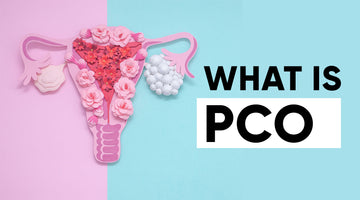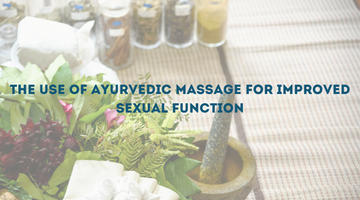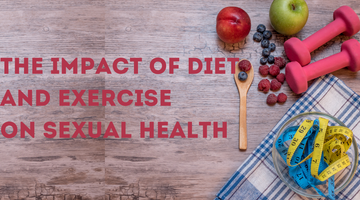
PCOS is a condition in which the ovaries produce an abnormal amount of androgens, male sex hormones that are normally present in small amounts in women. The term Polycystic Ovary Syndrome refers to the ovary's numerous small cysts (fluid-filled sacs). However, some women with this disorder do not develop cysts, whereas some women without the disorder do.
Ovulation is the release of a mature egg from an ovary. This occurs so that it can be fertilized by male sperm. If the egg is not fertilized, it is excreted during your period.
In some cases, a woman does not produce enough of the hormones required for ovulation. When ovulation does not occur, the ovaries can develop a large number of small cysts. These cysts produce androgens, which are hormones. Women with PCOS frequently have elevated levels of androgens. This can exacerbate a woman's menstrual cycle problems. It can also cause many of the symptoms associated with PCOS.
Medication is frequently used to treat PCOS. This does not cure PCOS, but it does help to reduce symptoms and prevent some health issues.
What Factors Contribute To PCOS?
The precise cause of PCOS is unknown. Insulin resistance is common in PCOS women. This means that the body is unable to properly utilize insulin. Insulin levels rise in the body, potentially leading to higher androgen levels. Obesity can also raise insulin levels, exacerbating PCOS symptoms. PCOS can run in families. PCOS is common in sisters or mothers and daughters.
What Are The Dangers Of PCOS?
If your mother or sister has PCOS, you are more likely to have it as well. It is also more likely if you have insulin resistance or are obese.
What Are The Signs And Symptoms Of PCOS?
Among the symptoms of PCOS are:
- Periods that are missed, irregular, or very light
- Large or numerous cysts on the ovaries
- Excessive body hair, particularly on the chest, stomach, and back (hirsutism)
- Weight gain, particularly around the abdomen (abdomen)
- Oily or acne-prone skin
- Male-pattern baldness or hair thinning
- Infertility
- Excess skin on the neck or armpits in small pieces (skin tags)
- Patches of dark or thick skin on the back of the neck, in the armpits, and under the breasts
How Is PCOS Identified?
Your doctor will inquire about your medical history and symptoms. You will also be subjected to a physical examination. This will almost certainly include a pelvic exam. This exam evaluates the condition of your reproductive organs both inside and outside of your body.
Some of the symptoms of PCOS are similar to those of other health issues. As a result, you may be subjected to tests such as:
Ultrasound
This ultrasound test uses sound waves and a computer to create images of blood vessels, tissues, and organs. This test is used to look at the size of the ovaries and see if they have cysts. The test can also look at the thickness of the lining of the uterus (endometrium).
Blood Tests
These look for high levels of androgens and other hormones. Your healthcare provider may also check your blood glucose levels. And you may have your cholesterol and triglyceride levels checked.
What Are The Treatment For PCOS?
A variety of factors influence PCOS treatment. These could include your age, the severity of your symptoms, and your overall health. The type of treatment you receive may also be determined by your desire to become pregnant in the future.
If you do decide to become pregnant, your treatment may include the following:
A change in diet and physical activity. A healthy diet and increased physical activity can assist you in losing weight and reducing your symptoms. They can also improve the efficiency with which your body uses insulin, lower blood glucose levels, and possibly help you ovulate.
Ovulation-Inducing Medications
Medications can assist the ovaries in producing eggs normally. These medications are not without risks. They can increase the likelihood of having multiple children (twins or more). They may also cause ovarian hyperstimulation. This occurs when the ovaries produce an excessive amount of hormones. It can result in symptoms like abdominal bloating and pelvic pain.
If you do not intend to become pregnant, your treatment may include the following:
Pills For Birth Control
These aid in the control of menstrual cycles, the reduction of androgen levels, and the reduction of acne.
Diabetes Treatment
This is frequently used to treat insulin resistance in PCOS. It may also help to lower androgen levels, slow hair growth, and make you ovulate more frequently.
A change in diet and physical activity. A healthy diet and increased physical activity can assist you in losing weight and reducing your symptoms. They can also improve the efficiency with which your body uses insulin, lower blood glucose levels, and possibly help you ovulate.
Other symptoms will be treated with medications. Some medications can aid in the reduction of hair growth or acne.
What Are The PCOS Complications?
Women who have PCOS are more likely to develop serious health issues. These include type 2 diabetes, high blood pressure, heart and blood vessel problems, and uterine cancer. Women suffering from PCOS frequently struggle to conceive (fertility).
PCOS Symptoms
Weight gain, hair growth, and acne are some of the physical symptoms of PCOS that some women experience. Electrolysis and laser hair removal are two cosmetic treatments that may help you feel better about your appearance. Consult your doctor about the best ways to treat the symptoms that are bothering you.
When should I seek medical attention?
Call your doctor if you have missed or irregular periods, excessive hair growth, acne, or weight gain.
Important Points
- PCOS is a common hormonal issue among women of childbearing age.
- Women with PCOS may not ovulate, have elevated androgen levels, and have numerous small cysts on their ovaries.
- PCOS can result in irregular or missed menstrual cycles, excessive hair growth, acne, infertility, and weight gain.
- Women who have PCOS are more likely to develop type 2 diabetes, high blood pressure, heart problems, and endometrial cancer.
- Treatment for PCOS may differ depending on whether or not a woman intends to become pregnant. Women who intend to become pregnant in the future may be prescribed various medications
Tips for getting the most out of a visit to your health care provider:
- Make a list of the questions you want to be answered before your visit.
- Bring someone with you to assist you in asking questions and remembering what your provider says.
- Take notes during your visit, including the names of any new medications, treatments, or tests, as well as any new instructions your provider gives you.
- If you have a follow-up appointment, make a note of the date, time, and reason for the visit.
- Understand how to contact your provider if you have any questions.
In The End
Your period is a completely normal occurrence. It's your body's way of getting ready for pregnancy. Your body excretes tissue that it no longer needs to nourish a fertilized egg every month that you are not pregnant. Periods are an expected and healthy part of every woman's life. They should not keep you from exercising, enjoying yourself, or living your life. If you have any questions about your periods, consult your doctor, a parent, a health teacher, a school nurse, or an older sister. If you notice any changes in your menstrual regularity, frequency, duration, or volume, consult your doctor or gynecologist.
AADAR Ayurveda brings you a blend of herbs well-known in Ayurveda to support smooth muscle function and healthy blood flow. A natural supplement used to reduce the discomforts of menstruation like cramps, hormone imbalance, mood swings, irregular periods, or digestion. AADAR's Good Period available in both capsule and roll-on form soothes your period pain and lets you enjoy those days pain-free.
We have Health Experts who can easily connect with you and discuss your sexual concerns. You can consult your family doctor first to get the most accurate diagnosis, or you can contact our Health Expert or connect with us at +919867667699.




